#include <stdbool.h>#include <stddef.h>#include <stdint.h>#include <stdlib.h>#include <string.h>#include <derive-c/core/helpers.h>#include <derive-c/core/panic.h>#include <derive-c/core/alloc/def.h>#include <derive-c/core/self/def.h>#include <derive-c/core/alloc/undef.h>#include <derive-c/core/self/undef.h>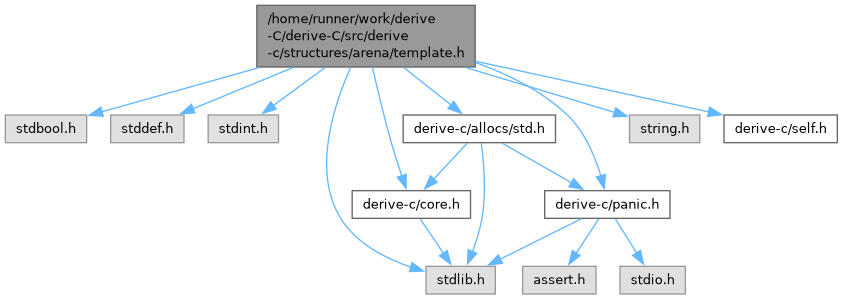
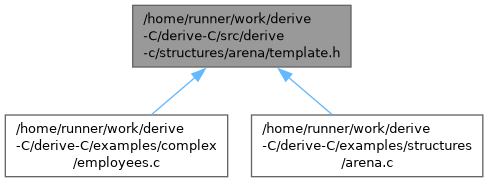
Go to the source code of this file.
Classes | |
| struct | value_t |
| struct | INDEX |
| struct | SLOT |
| struct | SELF |
| An allocator that prints to stdout when it allocates or frees memory. More... | |
| struct | IV_PAIR |
| struct | IV_PAIR_CONST |
Macros | |
| #define | INDEX_BITS 32 |
| A vector-backed arena, with support for small indices. | |
| #define | VALUE value_t |
| #define | VALUE_DELETE value_delete |
| #define | VALUE_CLONE value_clone |
| #define | SLOT NS(SELF, slot) |
| #define | CHECK_ACCESS_INDEX(self, index) |
| #define | RESIZE_FACTOR 2 |
| #define | INDEX NS(SELF, index) |
| #define | IV_PAIR NS(SELF, iv) |
| #define | IV_PAIR_CONST NS(SELF, iv_const) |
Functions | |
| static void | value_delete (value_t *UNUSED(self)) |
| static value_t | value_clone (value_t const *self) |
| static SELF | new_with_capacity_for (INDEX_TYPE items, ALLOC *alloc) |
| static INDEX | insert (SELF *self, VALUE value) |
| static VALUE * | try_write (SELF *self, INDEX index) |
| static VALUE * | write (SELF *self, INDEX index) |
| static VALUE const * | try_read (SELF const *self, INDEX index) |
| static VALUE const * | read (SELF const *self, INDEX index) |
| static SELF | clone (SELF const *self) |
| static INDEX_TYPE | size (SELF const *self) |
| static bool | full (SELF const *self) |
| static bool | try_remove (SELF *self, INDEX index, VALUE *destination) |
| static VALUE | remove (SELF *self, INDEX index) |
| static bool | delete_entry (SELF *self, INDEX index) |
| static bool | empty (ITER const *iter) |
| static IV_PAIR const * | next (ITER *iter) |
| static ITER | get_iter (SELF *self) |
| static void | delete (SELF *self) |
| static bool | empty (ITER_CONST const *iter) |
| static IV_PAIR_CONST const * | next (ITER_CONST *iter) |
| static ITER_CONST | get_iter_const (SELF const *self) |
Variables | |
| static size_t | max_capacity = MAX_CAPACITY |
| static size_t | max_index = MAX_INDEX |
| static IV_PAIR_CONST | iv_const_empty |
Macro Definition Documentation
◆ CHECK_ACCESS_INDEX
| #define CHECK_ACCESS_INDEX | ( | self, | |
| index ) |
Definition at line 69 of file template.h.
◆ INDEX
Definition at line 76 of file template.h.
◆ INDEX_BITS
| #define INDEX_BITS 32 |
A vector-backed arena, with support for small indices.
Definition at line 19 of file template.h.
◆ IV_PAIR
Definition at line 280 of file template.h.
◆ IV_PAIR_CONST
Definition at line 346 of file template.h.
◆ RESIZE_FACTOR
| #define RESIZE_FACTOR 2 |
Definition at line 73 of file template.h.
◆ SLOT
Definition at line 67 of file template.h.
◆ VALUE
| #define VALUE value_t |
Definition at line 29 of file template.h.
◆ VALUE_CLONE
| #define VALUE_CLONE value_clone |
Definition at line 33 of file template.h.
◆ VALUE_DELETE
| #define VALUE_DELETE value_delete |
Definition at line 31 of file template.h.
Function Documentation
◆ clone()
Definition at line 195 of file template.h.


◆ delete()
|
static |
Definition at line 332 of file template.h.
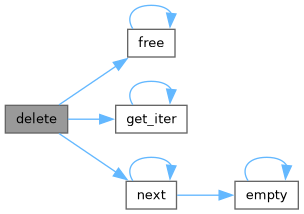
◆ delete_entry()
Definition at line 262 of file template.h.


◆ empty() [1/2]
|
static |
Definition at line 293 of file template.h.

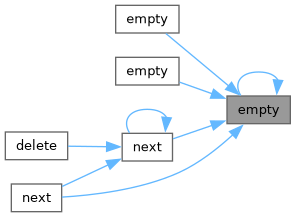
◆ empty() [2/2]
|
static |
Definition at line 364 of file template.h.

◆ full()
|
static |
Definition at line 225 of file template.h.


◆ get_iter()
|
static |
Definition at line 318 of file template.h.

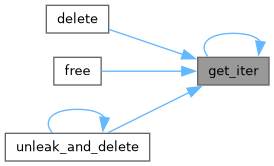
◆ get_iter_const()
|
static |
Definition at line 387 of file template.h.


◆ insert()
Definition at line 129 of file template.h.


◆ new_with_capacity_for()
Definition at line 113 of file template.h.


◆ next() [1/2]
|
static |
Definition at line 301 of file template.h.


◆ next() [2/2]
|
static |
Definition at line 369 of file template.h.
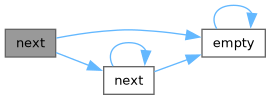
◆ read()
Definition at line 189 of file template.h.

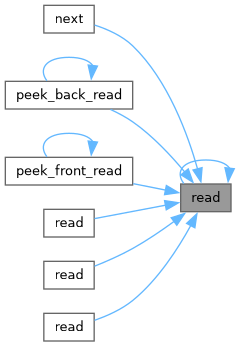
◆ remove()
Definition at line 256 of file template.h.


◆ size()
|
static |
- Examples
- complex/prime_sieve.c.
Definition at line 220 of file template.h.

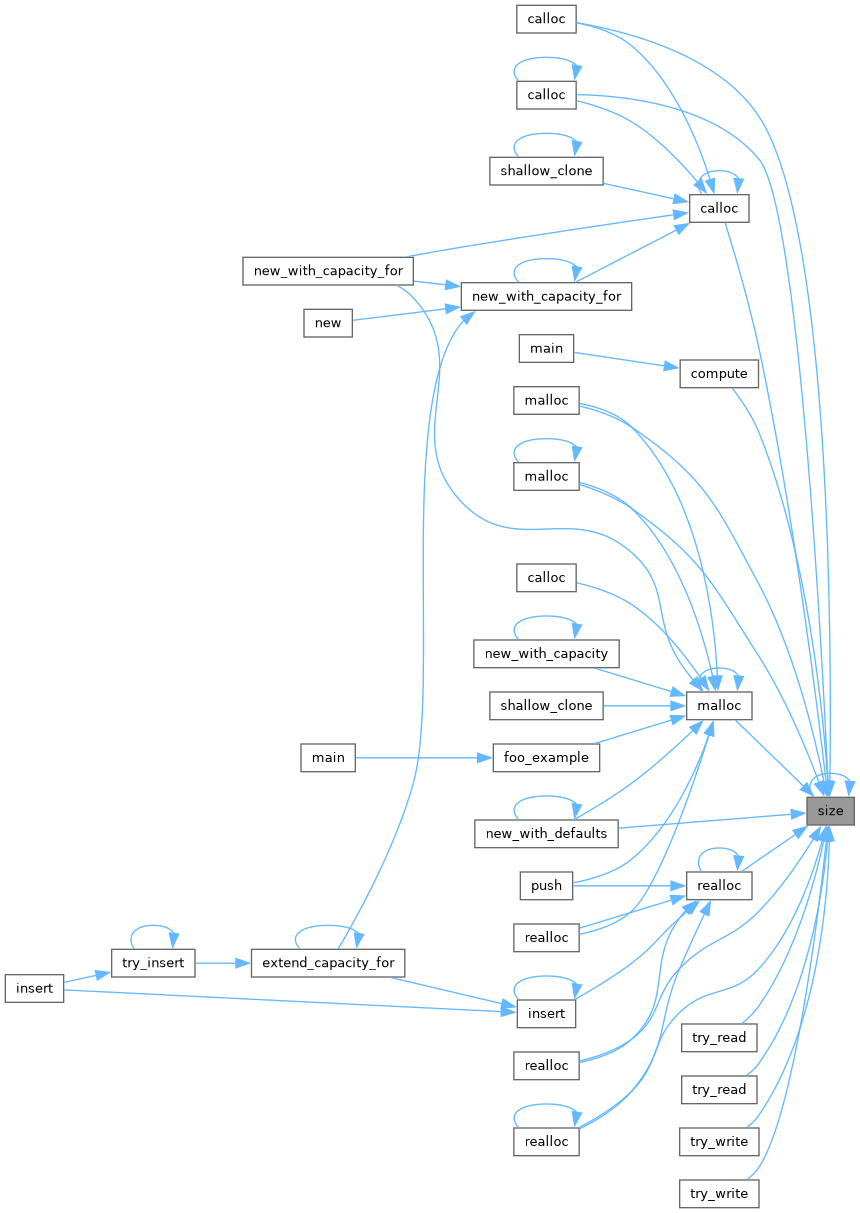
◆ try_read()
Definition at line 177 of file template.h.

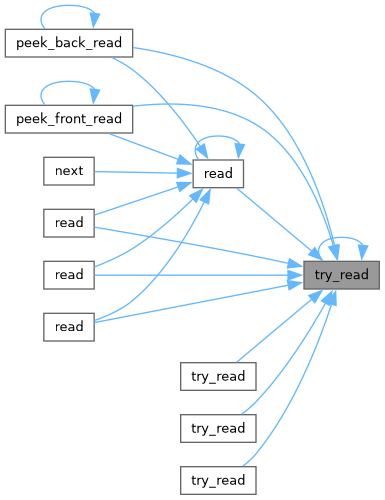
◆ try_remove()
Definition at line 238 of file template.h.

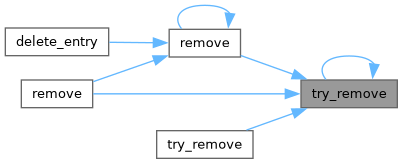
◆ try_write()
Definition at line 159 of file template.h.

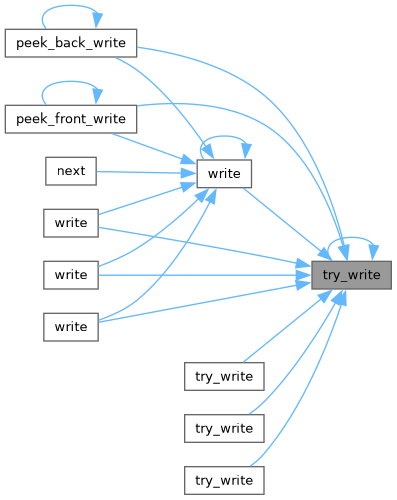
◆ value_clone()
Definition at line 32 of file template.h.
◆ value_delete()
|
static |
Definition at line 30 of file template.h.
◆ write()
Definition at line 171 of file template.h.

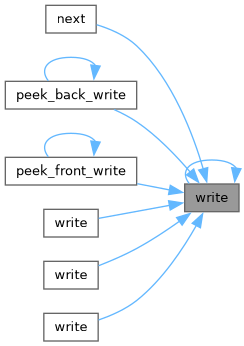
Variable Documentation
◆ iv_const_empty
|
static |
Definition at line 352 of file template.h.
◆ max_capacity
|
static |
Definition at line 235 of file template.h.
◆ max_index
|
static |
Definition at line 236 of file template.h.